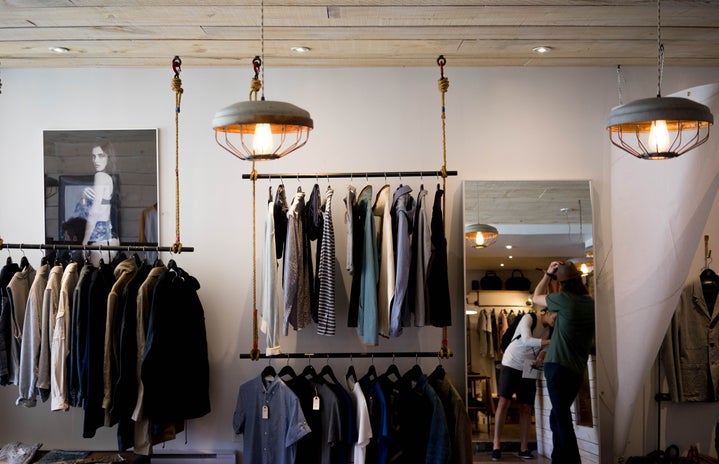When you search ‘y2k’ on Depop you are met with literally thousands of results. The popularisation of these ‘vintage’ 2000s style clothes has become a justification for Depop sellers to charge unnecessarily high prices for these edgy, sometimes discontinued pieces.
Depop was originally a huge positive step for a more sustainable fashion world and a more environmentally friendly alternative to fast fashion. Initially it was an online version of a charity shop enabling people to buy clothing at a lower price but now the app’s staggering gentrification may actually be turning people back towards fast fashion. For example, when I search ‘y2k crop top’ the first item that comes up is £36. If I search the style of this top on fast fashion website Shein, pretty much the exact same top appears for £6. You can hardly blame users for opting to use non-sustainable brands when there is such a significant price difference. Some Depop users even bulk buy clothes from fast fashion websites to then resell at a higher price, which seems exploitative of those who are trying to shop sustainably.
This is not to say that some high prices aren’t justified; as whilst Depop is used to resell clothes, it is also a platform for people to sell their own designs and products they’ve made. Creating and reworking clothes does take a lot of time and effort, so it is fair for that to be reflected in the price.
A lot of new Depop users find it hard to break into the market and get their items noticed, especially if it’s just the results of their wardrobe clear out, as there are so many items on the app. Being a successful seller now requires a lot of commitment, posting good quality photos, relevant hashtags, keeping up with bundle deals and so on.
Whilst Depop can be a great platform for users to upcycle and rehome clothes, cutting down on clothing waste and encouraging sustainability, it is slowly morphing into just another overpriced clothing website, but with about ten times more clothes for sale.
Some tips if you’re selling on Depop: check how much the item of clothing was originally- can you really justify selling it for much higher? See what similar items there are already and how much they’re being sold for. And lastly, if it’s just another top you’ve found from a few years ago, maybe try just donating it to a charity shop instead of trying to pass it off as ‘y2k’ or ‘vintage’.


